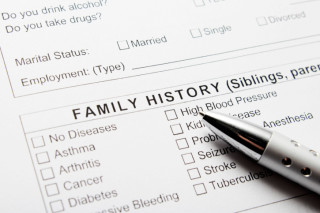 Pregnant women expect quite a bit from their healthcare providers, even more so if they have a disease that requires supervision and treatment. We asked some members of our advisory board what their biggest challenges are when it comes to providing pregnant women with a disease – or those who are planning to get pregnant – the appropriate access to care and information.
Pregnant women expect quite a bit from their healthcare providers, even more so if they have a disease that requires supervision and treatment. We asked some members of our advisory board what their biggest challenges are when it comes to providing pregnant women with a disease – or those who are planning to get pregnant – the appropriate access to care and information.
This is what they had to say…
Dr. Frédéric Amant
 The biggest challenge is the lack of experience each individual physician has in this matter. This observation, together with the extra work it requires, results in suboptimal or no treatment during pregnancy. Online information on this matter is important since I encountered several patients who personally contacted me and were not sent by their treating physician. The lack of experience needs to be solved by centralization.
The biggest challenge is the lack of experience each individual physician has in this matter. This observation, together with the extra work it requires, results in suboptimal or no treatment during pregnancy. Online information on this matter is important since I encountered several patients who personally contacted me and were not sent by their treating physician. The lack of experience needs to be solved by centralization.
I think that to address this issue, information using different media may help, but the best way is the publication of valid research data in meetings and papers as this remains the ultimate way to convince physicians that treatment doesn’t necessarily need to stop for pregnant women.
Dr. Tea Collins
 Some pre-existing chronic diseases should not prevent women from experiencing the joys of motherhood. In many low-income countries, or for poor women even in countries with well-developed healthcare systems, one of the biggest challenges is limited access to basic healthcare services. Women often do not have a competent healthcare provider who can correctly diagnose the problem and prescribe needed medication.
Some pre-existing chronic diseases should not prevent women from experiencing the joys of motherhood. In many low-income countries, or for poor women even in countries with well-developed healthcare systems, one of the biggest challenges is limited access to basic healthcare services. Women often do not have a competent healthcare provider who can correctly diagnose the problem and prescribe needed medication.
Despite an abundance of donor-supported reproductive health education programs, there is still a lack of programs that will educate both healthcare providers and patients on how to handle chronic conditions during pregnancy. For instance, the information on teratogenic effects (the consequences that consuming substances can have on the developing fetus) of medications is not readily available. This is why more research and information is needed on the safety of medicines for other chronic conditions, so women will be given a chance to carry healthy babies without compromising their own health.
Professor Paul Emery
 For many individuals, the opportunity for motherhood is an absolute priority. Perhaps the biggest challenge facing our patients is the understanding among health professionals that pregnancy can be safely undertaken. And then there is also the issue of providing them with accurate information about the risks, particularly over active diseases and drug use during pregnancy.
For many individuals, the opportunity for motherhood is an absolute priority. Perhaps the biggest challenge facing our patients is the understanding among health professionals that pregnancy can be safely undertaken. And then there is also the issue of providing them with accurate information about the risks, particularly over active diseases and drug use during pregnancy.
